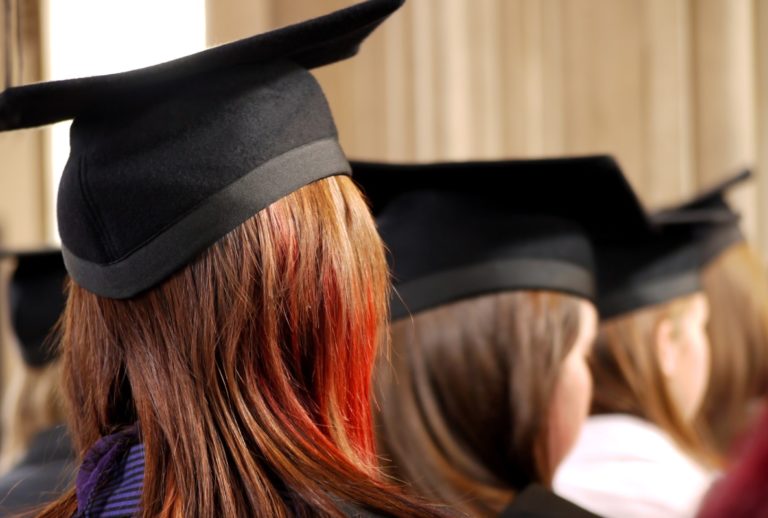
Australia is one of the most popular study destinations in the world, hosting more than 600,000 international students per year. Studying in Australia require some organisation and a sizeable budget. Indeed, tuition fees and everyday living costs are quite high and need to be considered when planning to study abroad. You must therefore plan your budget in advance to avoid any unpleasant surprises. This guide provides a comprehensive overview of the budget required to study in Australia, covering tuition fees, living expenses, and additional costs.
Table of Contents
Tuition Fees: an important budget
You can study at all levels of education from primary and secondary school, to vocational education and training (VET), from English language courses to higher education (including universities). You should be aware that the costs of studying will depend on your education provider, the level of study you choose and the city where you’ll be studying. First of all, it is important to make sure that your chosen course is available for international students. Indeed, the tuition fees are different for Australian and foreign students.
Tuition fees and course costs
Study in Australia, is the official government site for international students. It gives you a broad indication of the range of course costs (yearly) for different types of qualifications
- School – $7,800 to $30,000
- English language studies – the cost of English language courses ranges from AUD 300 to AUD 500 per week, depending on the length and intensity of the course.
- Vocational Education and Training (Certificates I to IV, Diploma and Advanced Diploma) – VET courses are generally less expensive, ranging from AUD 5,000 to AUD 15,000 per year. These courses provide practical skills and training in various trades and professions.
- Undergraduate Bachelor Degree – Tuition fees for undergraduate programs vary widely depending on the university and the course of study. On average, international students can expect to pay between AUD 20,000 and AUD 45,000 per year.*
- Postgraduate Masters Degree – Postgraduate programs, including master’s and doctoral degrees, typically cost more than undergraduate programs. Fees range from AUD 22,000 to AUD 50,000 per year.*
- Doctoral Degree – $19,000 to $42,000*
* Note: This does not include high cost of delivery courses such as veterinary and medical. Please visit institution websites directly to see costs for these courses.
Australian universities are world-renowned and the fees are very high. If you want to go to one of the top universities (Group of 8) the fees are usually around $25,000 per year. You will find the school fees that concern you in the “International Student Fees” category on their websites.
Other school related expenses
If English is not your first language, a compulsory English level test is required when enrolling in most establishments (except language schools). It costs around $410 and is valid for 2 years. If English is your first language, you need to have citizenship or permanent residency and completed secondary or higher education (tertiary) studies in an English-speaking country for most of universities. Check the website of the university of your choice to see their specific requirements.
International students must have Overseas Student Health Cover (OSHC) for the duration of their stay in Australia. The cost varies depending on the provider and the length of coverage. On average, OSHC costs between AUD 450 and AUD 600 per year.
Course materials, textbooks, and other supplies can cost around AUD 500 to AUD 1,000 per year. Some courses may require additional equipment or software.

Student visa costs
The fee for the Student Visa (Subclass 500) currently starts from $1600 (July 2024). The Department of Home Affairs also has financial requirements you must meet in order to receive a student visa.
Refer to the step by step Student Visa Subclass 500 application and Document Checklist Tool for details on how to provide the evidence required to cover the costs of your stay.
With a student visa, you can study for up to 5 years at a recognised higher education institution.
From enrolment to getting a Student Visa, the budget is already substantial, which is why it is important to prepare well in advance before deciding to enrol in an Australian institution.
Do you need help to study in Australia?
You are not sure about the visa you need, the application or the school to pick ? Don’t worry. Specialised agencies can help you at no cost. Contact them via this page.
Plan your budget ahead
Summer jobs, “Gap Year”, loans, help from loved ones, there are many options available to you to prepare your budget. Also check with your city, region to see if there are scholarships available to help you finance your studies.
Payment methods for schools
Some universities or school fees are payable per semester. It means you will not have to pay the entire tuition fee at once. You should check with the institution of your choice in advance. In all cases, you will need to be enrolled and therefore have paid your fees to be able to apply for a student visa.
Travel and transport costs
On top of the budget required to cover the costs of studies, you will need to set aside a budget to cover the travel costs and everyday life transportation. This includes:
Airline tickets: around $1100 one way
Public transport: First from the airport to the city ($25). Then everyday transport to get to your institution if necessary. You can cover short distances with trams, trains or buses. Public transport costs vary by city. You should get a weekly or monthly pass to save some money. Depending on your ‘zone’ of travel, you can expect to spend between AUD 25 and AUD 55 per week. Many cities offer discounts or concessions for students.
Cost of living
The cost of living in Australia will vary depending on your lifestyle and the city you are studying. The Australian Government requires students to have access to approximately $21,000 per year to meet living costs.
Here is a breakdown of the living costs per week:
- Groceries and eating out: $80 to $280 (Cooking at home is generally more cost-effective than eating out).
- Utilities (electricity, gas, water, internet): can cost around AUD 35 – AUD 140 per week, depending on the accommodation type and usage.
- Entertainment: $80 to $150
- On-campus accommodation: $166 to $208
- Off-campus accommodation: $160 to $450
- Homestay: $200 to $280 per week
Most Australian universities provide breakdowns of the cost of living in Australia on their websites, you should check your institution’s site.
You also have to think about the trips you are going to plan. Remember that going to the other side of the world is an experience not to be missed. Many start with a budget in mind but quickly indulge in all that there is to do in Australia.
All of these expenses can be difficult to save in advance, which is why the majority of students plan to work alongside their studies once in Australia. Many save before leaving to cover the first few months.
Working while studying
In Australia, work and study are easily compatible and allow better budget management to cover your daily expenses. As an international student, you can work up to 48 hours per fortnight during the teaching period. You can work unrestricted hours during course break. Be aware, however, that it is not possible to work before the start of your school year.
You will to plan your schedule to be able to work during your free hours after / before your study hours. It is easy to find a job offering less than 20 hours a week. Indeed casual jobs being very common in Australia. Typical student jobs include hospitality, retail, tutoring, and administrative roles.
Read also : Student jobs in Australia
Budgeting tips
Plan Ahead: Create a detailed budget before arriving in Australia, considering all potential costs. Factor in some contingency funds for unexpected expenses.
Use Student Discounts: Take advantage of student discounts on transport, entertainment, and shopping. Many businesses offer special rates for students.
Cook at Home: Save money by cooking at home and buying groceries in bulk. Eating out regularly can quickly add up.
Public Transport: Use public transport instead of taxis or rideshares. Many cities offer student concessions for public transport.


























